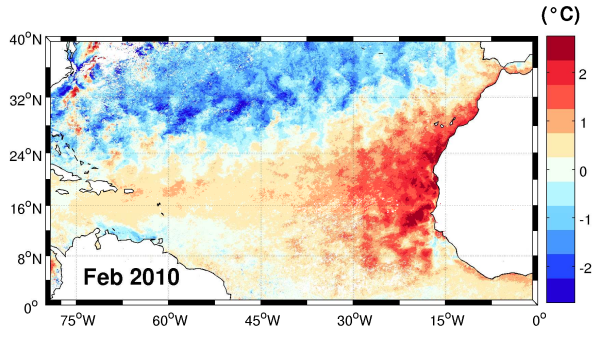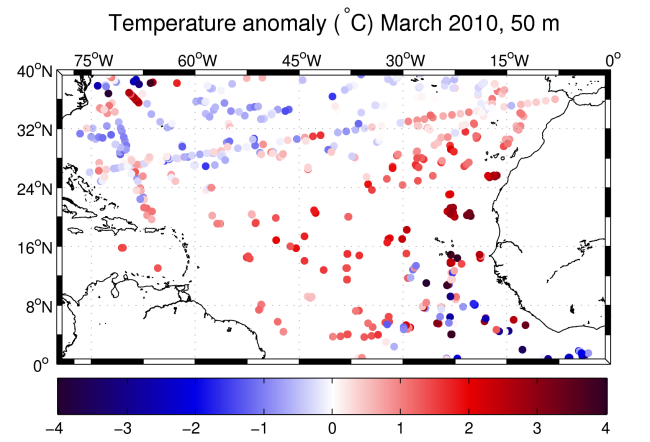2010 anomalies in the North Atlantic ocean
Back in 2010, we noticed that it was more rainy than usual in the Canary Islands. One of the things we looked at was the sea surface temperature (SST). Not so surprisingly, we found SST anomalies above 2°C off northwest Africa, with a clean structure as shown in the figure below. But this is just the beginning of the story.

What happens if we look below the sea surface? To find out the answer, we compiled in situ measurements and compute the temperature anomalies with respect to a climatology, at different depths. The new illustration shows the situation at 50 meters in March.

Clearly, the anomaly is not limited to the surface, indeed it extends up to 75 meters depth. Why is that? I won’t give the answer here, but we believe it is related to surface forcing. To be continued…